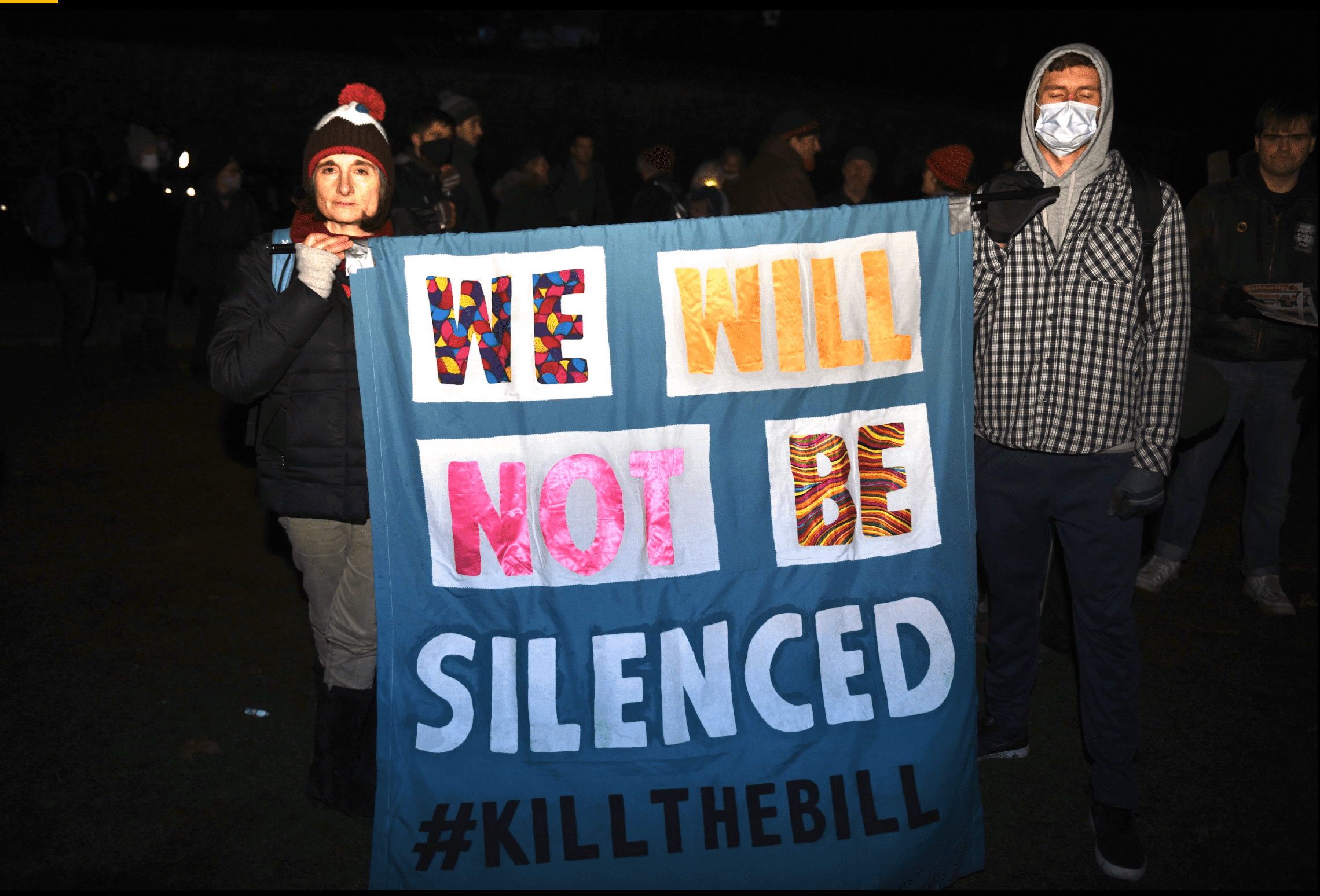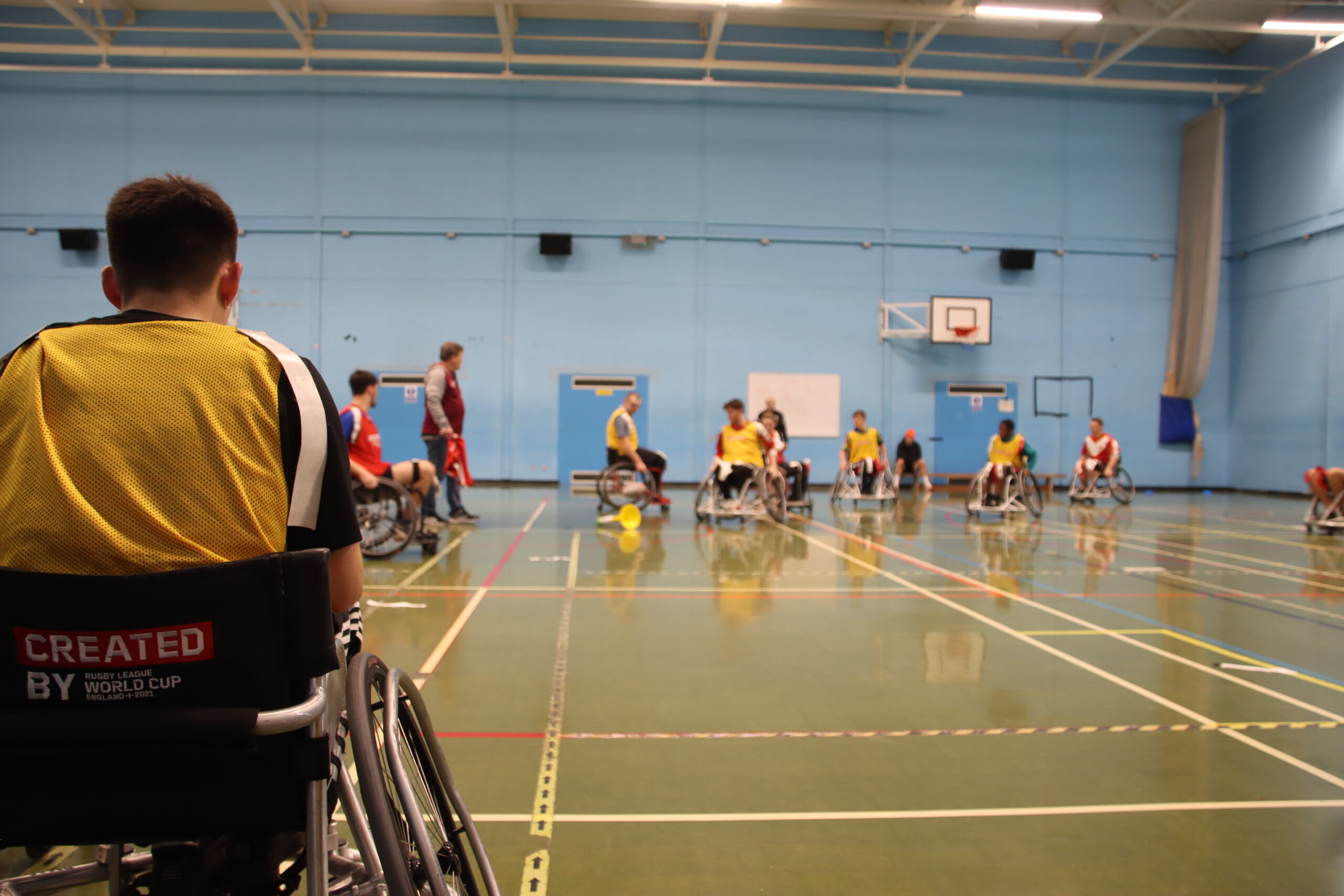Campaigners say the Police, Crime, Sentencing and Courts (PCSC) Bill, currently making its way through parliament, will “destroy what little democratic rights we have left”.
The bill is in its third reading stage in the House of Lords this week and votes will be held on an array of amendments. The government says new laws are needed to stop disruptive protests using up police time.
“In my opinion there’s no doubt that this bill will go through” said intersectional activist Talia Woodin.
Woodin has been campaigning against the bill since its proposal and says on its new stage: “It’s the logical next step for our right-wing ruling class, in their pursuit to stifle dissent, further oppress the already oppressed, and destroy what little democratic rights we still have.”
View this post on Instagram
What is happening with the bill this week?
The Lords are voting this week on amendments to the bill, which include expansions to police stop and search powers, a ban on “locking on” (attaching yourself, others or objects to another person, object or the land) as a form of protest.
They will also vote on the introduction of Serious Disruption Prevention Orders which would enable police to ban protestors whose actions could have resulted in serious disruption from attending further protests, even if disruption did not in fact occur.
Several amendments to the bill were added in the aftermath of a wave of disruption caused by Insulate Britain protesters who blocked major roads by gluing themselves to roads and vehicles.
This includes harsher punishments for anyone who wilfully obstructs a public highway.
If these new amendments are passed, then protesters could face up to 51 weeks in prison for breaches of the new offences or resisting stop and search.
“An orchestrated attack” on protest rights
The proposed amendments have triggered a wave of fresh Kill the Bill protests, the largest of which took place outside Parliament on Wednesday.
Protesters spoke of previous victories for social justice in an attempt to remind those debating in the nearby House of Lords of the importance of the right to protest.
Human rights group Liberty has called the bill “an orchestrated attack on the fundamental right to protest”.
They also said: “These new offences will either deter people from protesting, or drag them into the criminal justice system for doing so. They will also further entrench discrimination, with devastating consequences for marginalised communities.”

Kill the Bill protest outside Parliament on Wednesday
“(The bill) will disproportionately impact Black people and other marginalised groups” said Marvina Newton from Black Lives Matter ahead of her attendance at Wednesday’s protest. “All movements and people should fear what the Bill could mean for our democracy, society and right to protest.”
People of colour already face disproportionate levels of stop and searches, with Home Office figures showing black people were seven times more likely to be stopped than white people between April 2020 and March 2021.
In the same period, the government data showed the number of stop and searches carried out by the government increased by 24%.
The bill has also been criticised as an attack on the rights of Gypsy, Roma and Traveller people.
This is largely due to Part 4 of the bill which would change trespassing from a civil to a criminal offence and give the police additional powers to confiscate vehicles which in the case of travellers is their home.
The government rejected recommendations from the Joint Parliamentary Committee on Human Rights to ensure new police powers were not used to make Gypsy, Roma and Traveller people homeless in October.
‘Selfish actions which drain the police of resources’
The government has said the bill seeks to give the police sufficient powers and tools to protect the public and themselves and will lengthen the prison sentences of serious violent and sexual offenders.
These powers are being proposed despite official figures showing there to be no significant change in levels of violent crime in the year ending June 2021 compared to June 2019.
Priti Patel vowed to cut crime and back the police when she was appointed Home Secretary in July 2019.
“The police have our full support to maintain the pace at which they deal with difficult protests and public order matters,” said Patel.
“We have seen some of the most self-defeating and dangerous protests ever seen in recent years. These are selfish actions which drain the police of resources which should be used in our communities, protecting the vulnerable people who need them most”
Metropolitan Police Service Deputy Commissioner Sir Steve House welcomed the new powers the Bill will give the police, saying tactics of protesters had increased difficulty in public order policing in recent years.
For Talia Woodin, the effects the bill could have are deeply personal: “I’ve seen too many friends sent to prison over the past year for taking a stand against the real criminality, happening within the confines of Westminster.”
“I’ve experienced, witnessed and heard too many accounts of police abusing their powers and causing extreme harm to people. The damage this institution causes knows no limits.”
“This Bill will change the course of history in this country and for the vast majority that history is looking bleak. It’s on all of us to take a stand against it.”




